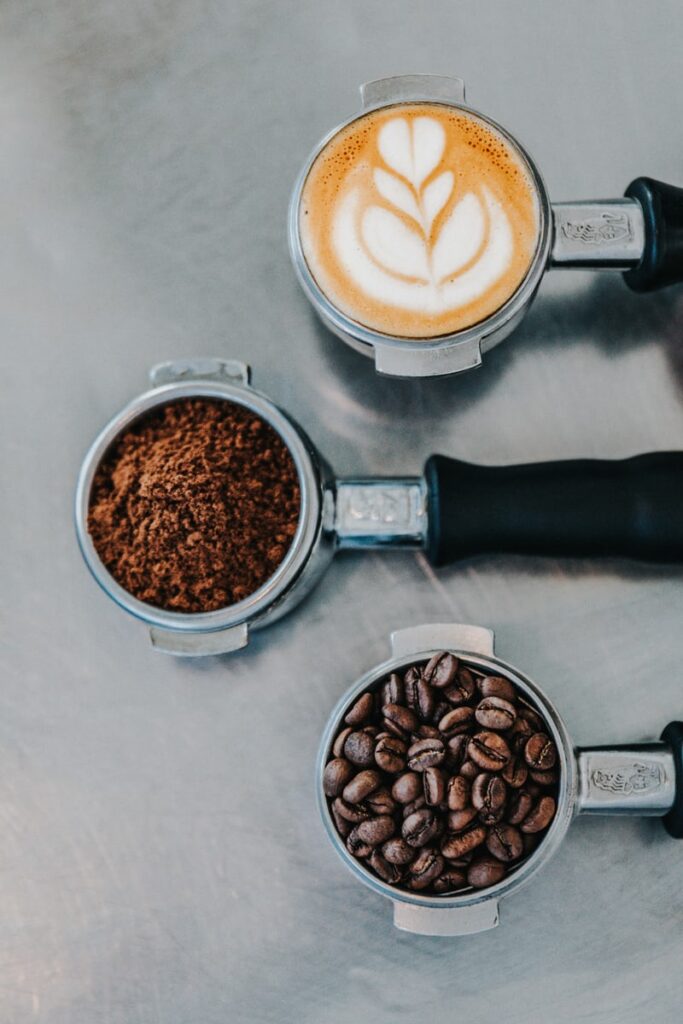Coffee is a conflated conundrum.
What a mouthful!
Now I need a sip.
It’s been a delicacy, image of elegance, luxury and classiness for centuries and is part of every day routines, including peasants, millionaires, and I’m sure billionaires.
Globally there are over 1 billion coffee drinkers and about 2 billion coffees are served per day with more women drinkers than men.
I’m sure you can come up with many reasons why.
Now, when it comes to billionaires, although there aren’t any specific sources or studies, I’m almost positive they don’t mind a cup of joe once in a while and yes, they do purchase it when they are on the go.
Having an addiction to coffee isn’t necessarily bad. There are a lot of health benefits that coffee beans provide.
These include:
Monitoring blood sugar levels
Lower the risk of death
Lower the risk of cancers
Stay awake and energized
Monitoring stress prior to the crash
Aid in weight loss to curb hunger
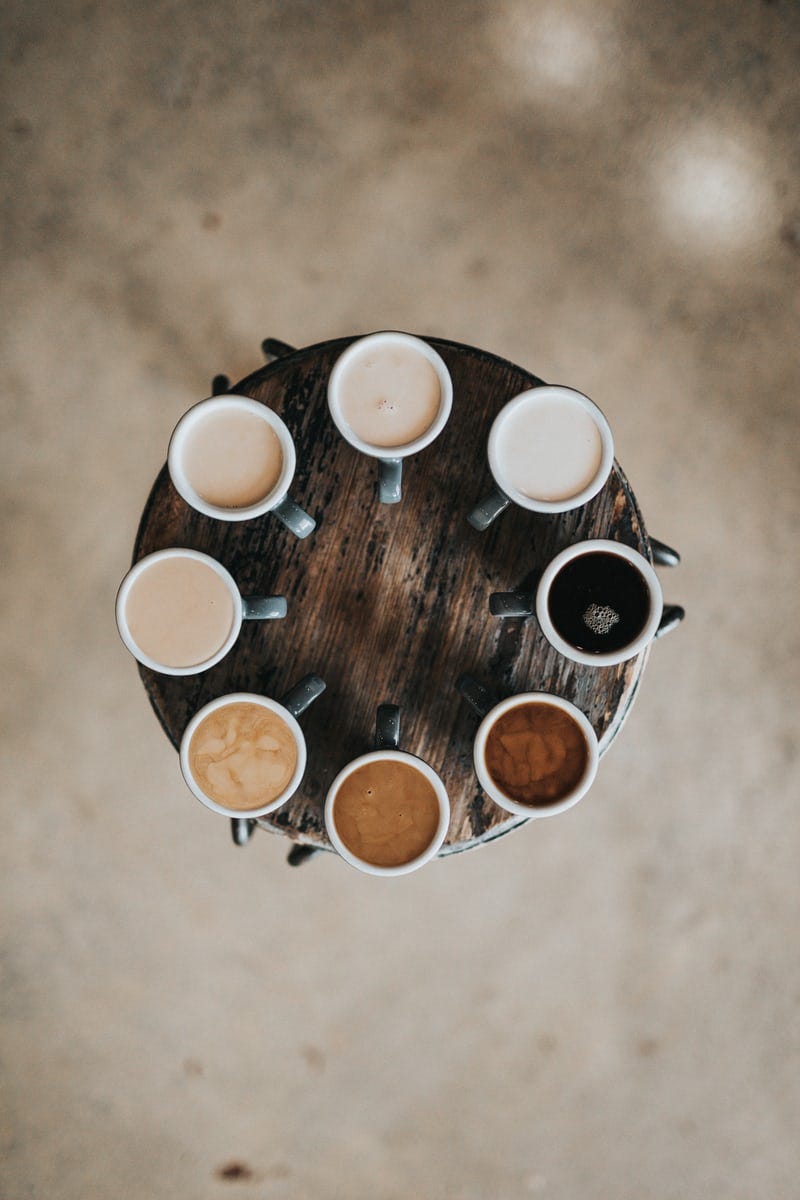
Coins and Coffee
When it comes to money and coffee, there are heated debates.
Hotter than a Macchiato.
If you have an addiction to finance, it’s never healthy. You either save too much to the point where you are a cheapo and not a friend or a spender like Paris Hilton on a high.
Coffee divides the nation for so many reasons and I don’t understand it. The new craze that is dividing the US besides the rigged election is the hair split.
Just to get this over with now, I’ve always split my hair in the middle and only keep it up.
If you’ve known me since birth you know two things:
-I hate the taste of coffee but not the smell
-I’ve never worn my hair down and always keep it in the middle part
Now that we’ve gotten the two most debated heated questions in America out of the way since the election was over, let’s discuss a more prominent issue: the dilemma with coffee and cents.
It just doesn’t make any cents!
Just to put it out there, I’ve coined the “Latte Factor”.
A few years down the road I can just imagine that term being embroidered in text books. Okay, maybe not that dramatic but I would like to build a legacy for myself somehow and through this blog that would be splendid.
But in all seriousness, those who love coffee, there’s good new and bad news.
Get ready to have bad breathe.
I’m assuming you want the good news first.
Good News:
You can continue drinking it, not as much as you want though because that would be bad for your blood pressure. You can also continue adding all the additional non-zero free sugar junk with oat, hemp, tree, plastic, whatever milk you want.
Bad News:
Your wallet and health is taking a hit. Down the road. Short term it’s no biggie.
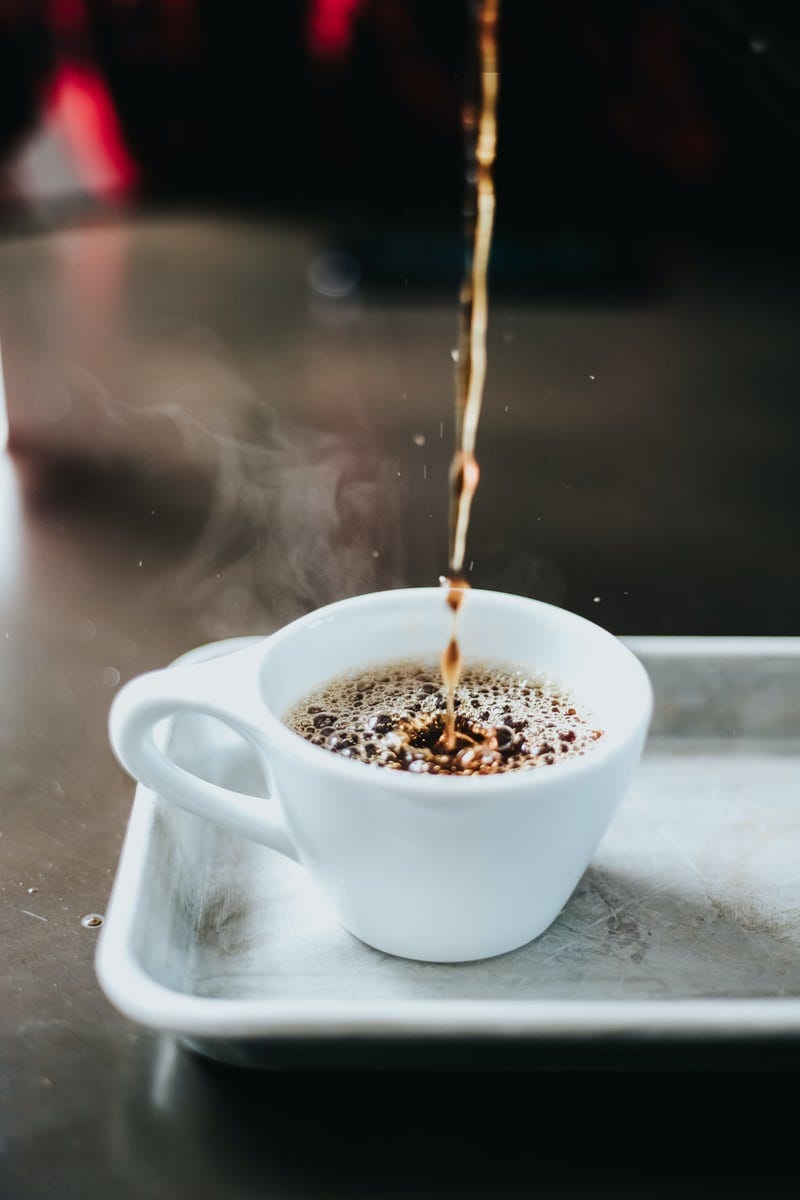
Drink & Spend
Although this is a personal finance and mental health channel, we will strictly focus on the financial burdens and advantages of buying coffee.
By coffee I don’t only mean lattes and espressos, even though they are ironically more on the expensive side and smaller in serving size.
You don’t need to hear me harping about coffee’s nutritional and toxic benefits.
All you have to know is that the more you add to coffee or anything = the better it tastes = the worse it is for you.
Myth: Buying Coffee Will Make You Poor
The real reason financial advisors are obsessed with coffee shaming is because it is a discretionary expense and really not necessary to purchase.
You can easily make an investment to buy a $200 all the way up to a $1200 Milo coffee maker if you’re really bougie and still save money left over year over year to save and possibly reinvest.
Although I’m not a coffee lover nor drinker, I can almost guarantee you that a $200 machine or a $1200 one won’t make a better roast.
Just like the toaster. It still burns bread the same way. Less mechanics the better.
Anyway, it all depends on where you’re sourcing the beans from which is another expense to add on top of the machine but still less than getting it ordered with your name at the store.
Let’s uncover what goes into the price of coffee if you were to purchase it at home vs in a local or global coffee shop most notably Starbucks.
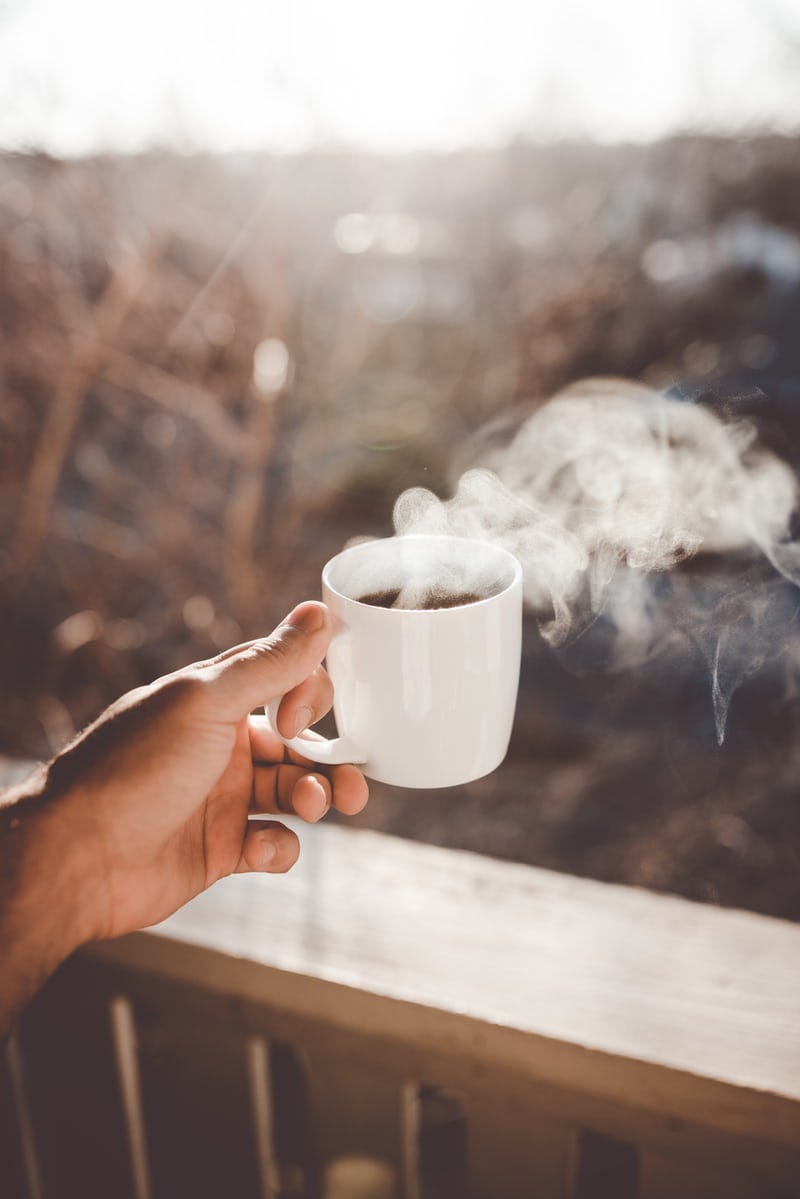
At Home Purchases to Make Coffee:
-Coffee roaster machine $200 — $1200
-Coffee beans $10-$50
-Milk $5-$20
-Cups $3-$70
-Boiled Water FREE
-Sugar and other junk supplements 0.90 cents to $3
Coffee Made By a Barista at Starbucks:
-Service $2-$3 tip
-Can have a possible wrong order-waste more time
-Wait in Line
-Coffee $2-$20 for some expressos and lattes more like $5-$30
-Tax + service fees $0.50-$2.50
-Time wasted going to shop and waiting or can be fun!
Time = Money after all!
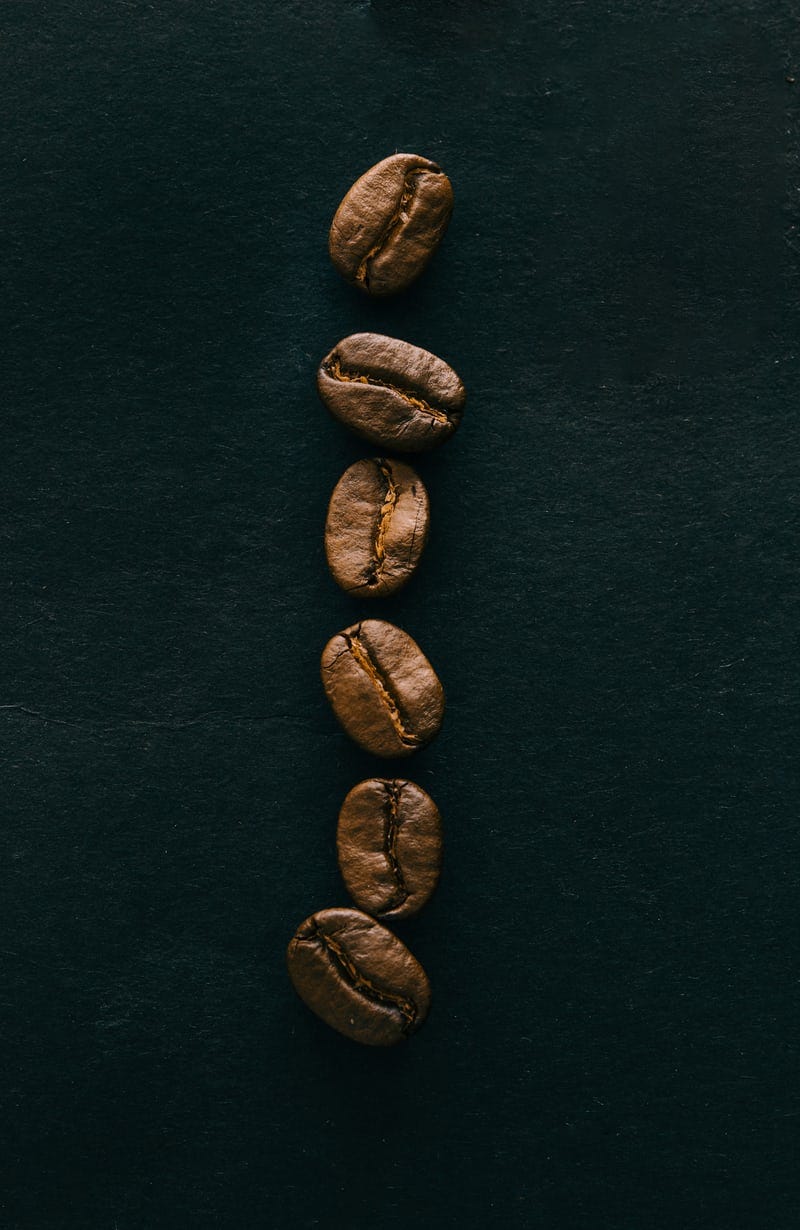
The Coffee Code
I understand there are many reasons people enjoy buying coffee which saves them hassle, mental energy, time and expenses for the short term.
These include:
-Running to grab a cup into Starbucks right across the office every morning before work in a rush
-Get the office’s orders as a nice gesture
-Socially distanced activity to be outdoors and drink a cup of Joe
-As you WFH(Work From Home) you want to support local coffee shops and or crave some interaction by taking a trip to the barista.
I’m all for helping out local business and Main Street during this tough time especially since 300+ small businesses run this country and need our help.
On the personal finance side, as savings rates have soared up to 40% during Covid as people spent less on big expenses such as commuting, vacations, traveling, luxuries, entertainment and tourism, they put into focus an emergency account, cash, savings and budgeting.
As nearly 46 million Americans have wiped their emergency savings out to keep up with rent, food and childcare expenses, deal with unemployment and reduced wages while the cost of living continues to soar in America, if we’ve learned one thing during this pandemic, it’s that planning for the worst, hoping for the best is the smartest move.
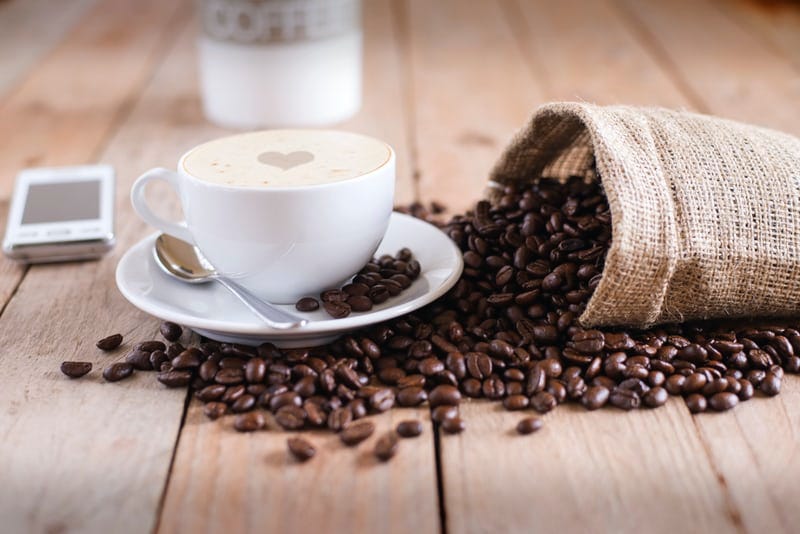
Mixed Roast
During this time, coffee might be an escape for you. Maybe it was a part of your work morning routine to catch up with colleagues and grab your orders.
And there is no reason you should take it away.
With extra disposable income on the side due to meticulous savings this past year, you shouldn’t feel guilty about supporting your local Mom and Pap shops around the corner.
The reason personal finance celebrities such as Suze Orman and Jim Cramer despise coffee calling it “peeing away millions of dollars” is because of the obvious reason: brewing coffee at home is less expensive and time consuming, not taking into consideration the social aspect of coffee grabbing.
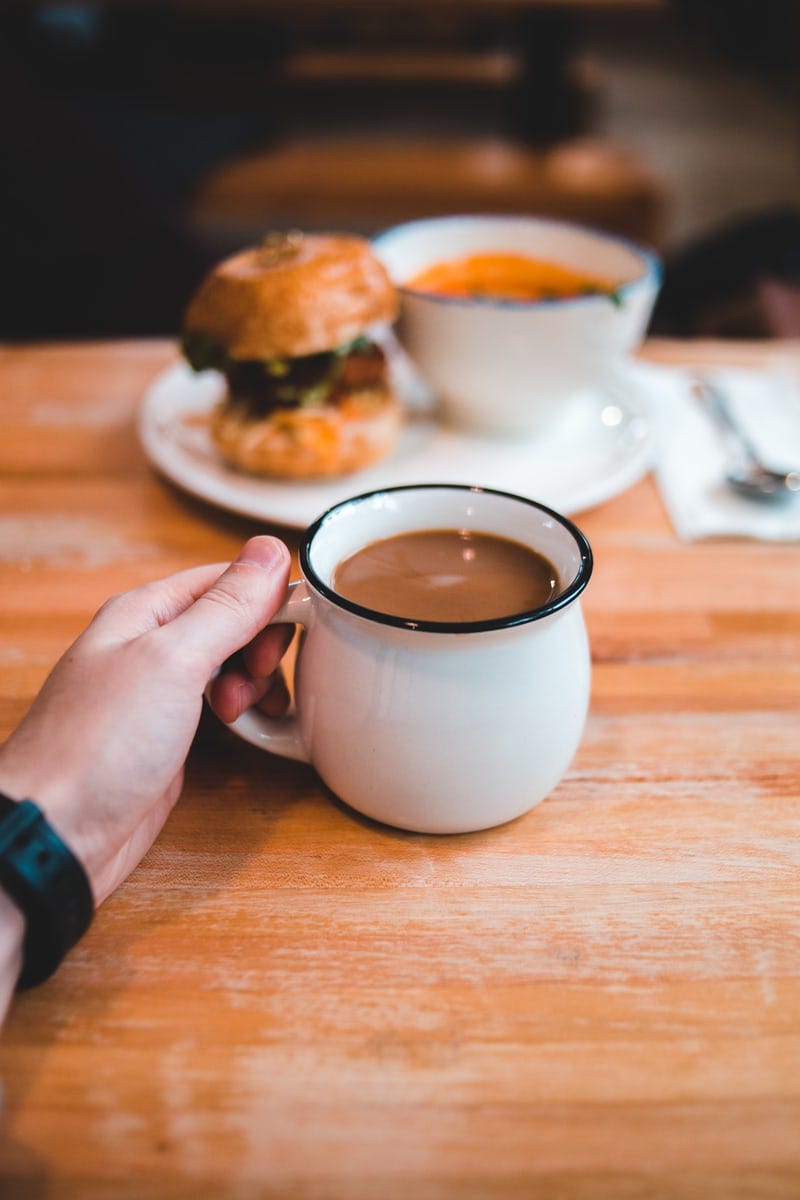
Food vs Coffee
It seems like coffee is more of a problem than buying lunch. No one criticized buying a $30 SweetGreen salad but when it comes to a $2 coffee, people are outraged.
Why is that?
Well, nothing is against coffee, we all can have it in our lives but since it is so accessible and easy to make at home, there is truly no excuse not to do it.
As opposed to a meal, no employee wants to prepare lunch and have it sitting in a cold Elementary school lunch box in a company refrigerator the size of a studio apartment in NYC keeping an eye on it all day to investigate if any employees will snag it.
Plus, lunch is a social activity. If you go to France, prior to Covid, it was legally banned to eat lunch at your desk. Yes. It’s true.
It finally became legalized to eat at your desk to reduce occupancy in crowded restaurants due to the case surge in France.
Coffee is something so simple that you can make it at home. You can even prepare it the night before and warm it up in the microwave if you really want to be time efficient.
Once again, I can’t speak for the taste but I have consulted my coffee addict friends and they say microwavable coffee is exactly the same. This isn’t being cheap, it’s watching out for your financial future. Nothing you should ever be ashamed of.
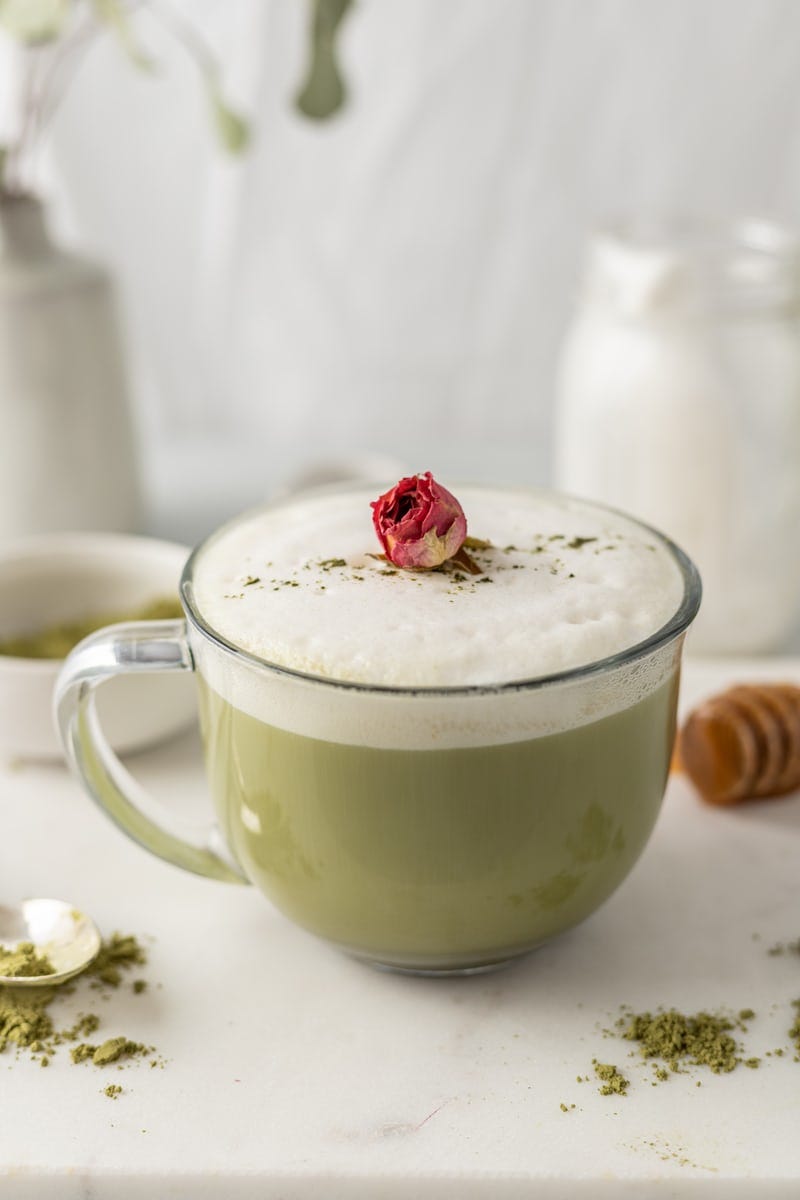
Millennial Hype
When I think of kids my age, graduates or those working full time ready to start families soon, they’ve already adopted this toxic mindset of paying for things that other people use.
Money was a taboo for most generations. It is only starting to become popularized today.
You can credit me for some of that.
My rule of thumb is never to look at the Joneses. Comparison is the theft of joy and buying experiences, such as a coffee from Starbucks because everyone else does is unrealistic and dumb.
It’s truly money down the drain. There is no benefit or investment. It simply tastes good but after a few sips, it’s gone, you wasted plastic and spent $2+ dollars.
What trips everyone, not just teens who used to fall into the coffee trap, if you just walk around any block in NYC, M-F, 9–5pm, you will employees to health care workers, business men, hedge fund executives, bus divers to regular Millennial New Yorkers buy coffee because they can but really shouldn’t.
They want something now and in our attention savvy world, we cannot wait.
We don’t look to the future hit to our bank account, we try to enjoy life so much in the present we put ourselves in jeopardy first without realizing it.
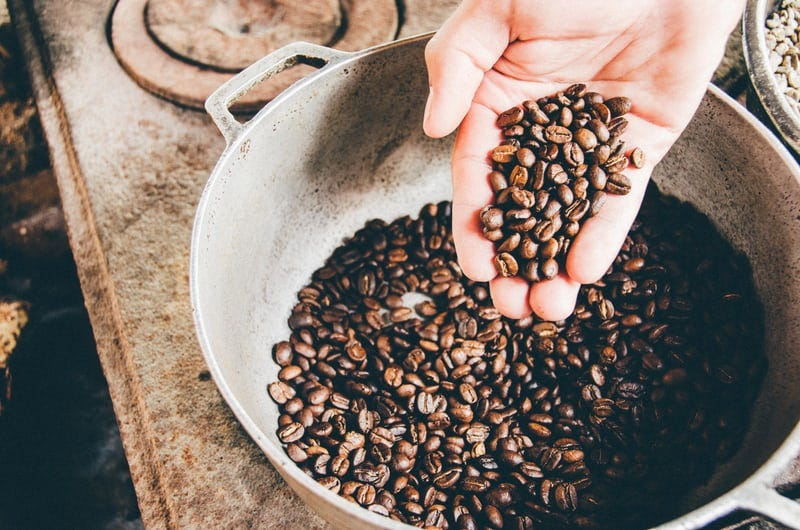
Classic Coffee and It’s History
The history of resentment over American coffee was only popularized by coffee shops and coffee culture in urban centers in the last 21st century.
This hype has been geared towards young people who have moved back to cities, buying $5 Matchas, iced coffees and drinking a variety of beverages not necessarily for the taste since Starbucks isn’t always known as the most delicious but for the popularity and image.
While previous generations of Americans fled for the suburbs to buy a home, build a family, farm, coffee wasn’t popular out and about.
Eating out was an event instead with physical food.
Coffee chats didn’t exist.
Those young people, toting their laptops to coffee shops to sip almond-milk coffee concoctions, didn’t follow their parents’ generation, which venerated things like marriage and home ownership.
In 2019, young Americans are less likely to buy homes, get married, and have kids than their generational forebears.
As a result, there’s a difference between if you CAN and SHOULD buy something and our parents knew better but are now adopting bad habits from the youngsters.
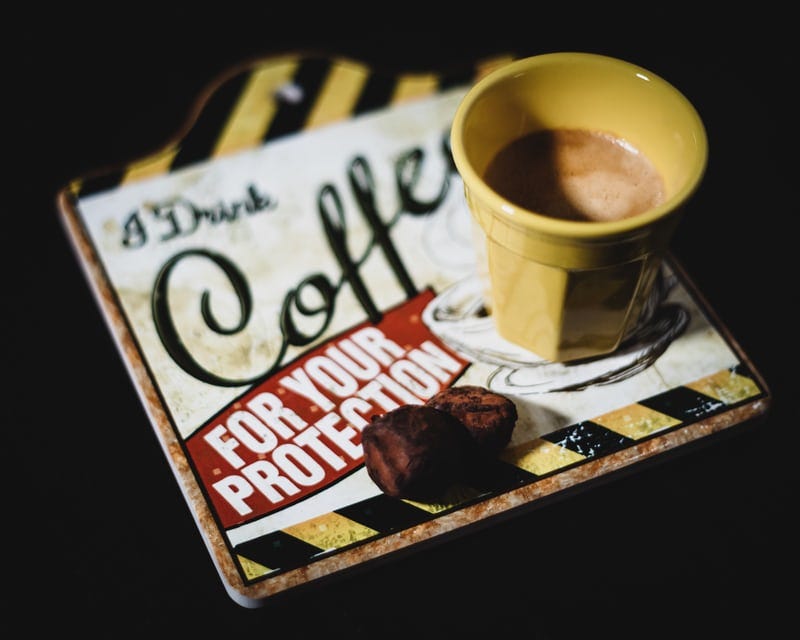
Coffee Confusion
The fact that coffee is a small expense compared to a meal is what decieves people. Most would rather ditch the salad thinking they are saving money on the coffee yet it really is the opposite.
Let’s weigh the price of a cup of coffee and a sensible lunch at Chipotle.
Burrito + Guac and Chips + Drink from Chipotle for $10-$20
-Keeps you full for hours
-Many additions-drink + chips + toppings
-More relaxed social time for lunch with friends
-Enjoy the meal more and save for later
-More nutritious
Coffee $2-$14
-Typically drink it up in 1 sitting
-Rarely take it with you unless it’s in a reusable cup
-Still hungry, not satiated as much
-Tend to buy more because portions aren’t as large
Compared to a meal, people should never give it up compared to coffee. If you have time to work 8+ hours, watch Netflix for 2 hours and spend an hour on social media per day, you have 20 minutes to wake up early and make that roast.
Still Popular?
Let’s get the cat out of the bag.
Buying coffee isn’t the problem, it’s the amount, consistency and repetitiveness of the consumption.
Someone who is less likely to be able to afford coffee typically purchases it to hide their image of being poor.
If you’re a stealth wealth frugal minimalist teen like me, you would prioritize your health and only drink cheap but healthier liquids.
I don’t spend a dime on my liquids because water is my go-to.
It’s rare that you can get such a cheap and healthy item like water.
Yet, I know plenty of my friends who’ve forced themselves to drink coffee and stop at the local barista every morning because they want to seem popular.
My best piece of advice is to have a consistent schedule and track your spending if you’re like them.
$2 can add up quick.
That’s $60 per month and $730 per year when you could be spending that on paying off student-loan debt, housing insecurity, better experiences such as learning how to cook or make coffee, being with family, investing in yourself and the market and or finding employment.
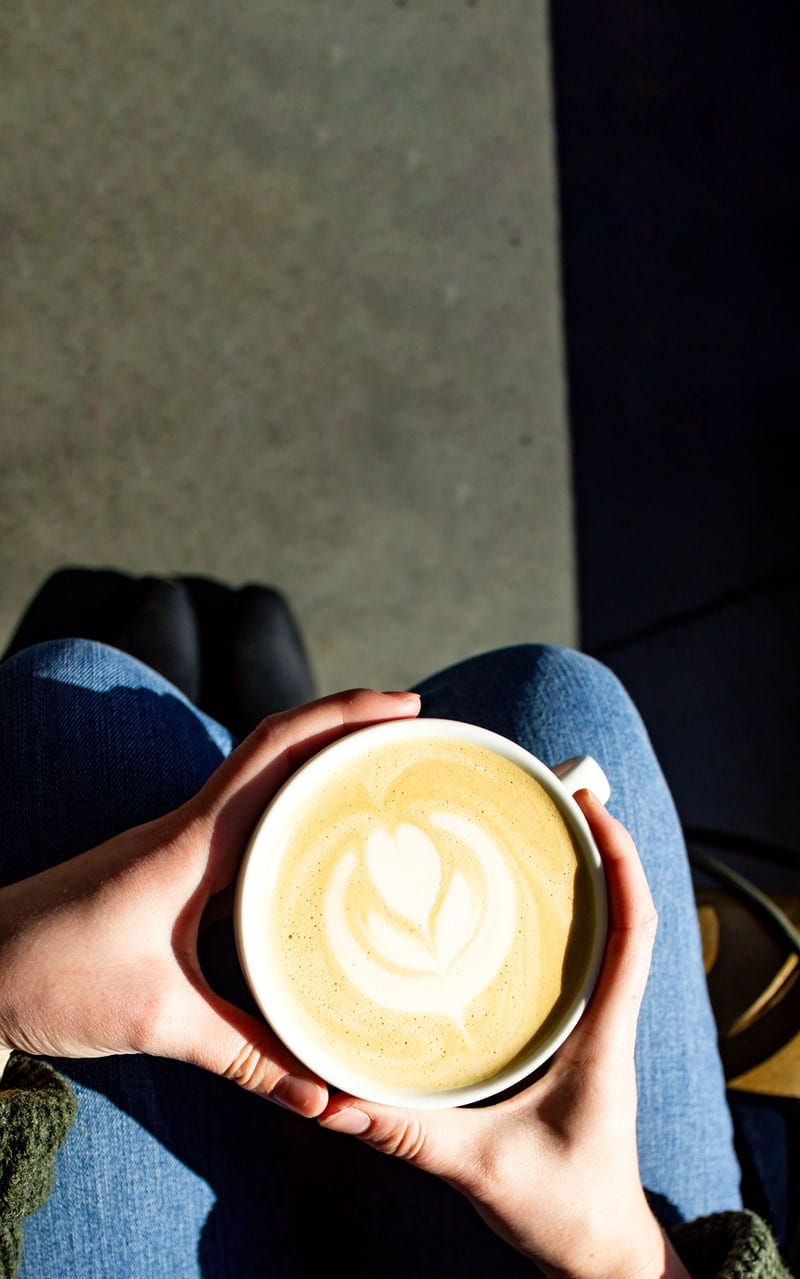
Coffee’s Element
Coffee is a troubling economic and social trend that has shaped adult life for young Americans.
Buying coffee every morning isn’t the smart move.
Coffee is known as a ‘little’ luxury that helps heal people, especially during these times.
It’s comforting as a warm drink.
A cup of joe is relaxing but these repeated treats have a long effect for you long term and take a hit to your bank account.
Laura Vanderkam, the author of All the Money in the World: What the Happiest People Know About Getting and Spending states, “It’s these small, repeated treats that do a lot for you long term. In many cases, you’re probably better off getting a cheap dining room table and using that extra money to get coffee or go out to lunch with friends.”
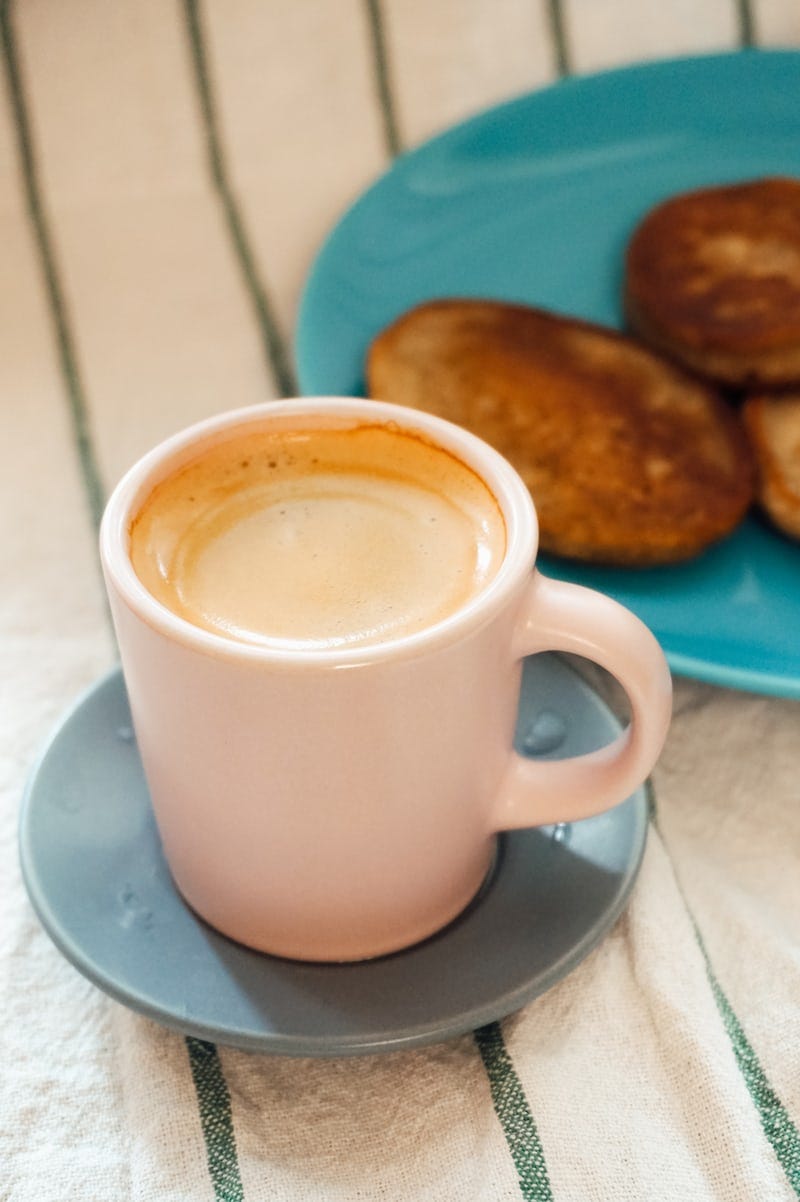
Coffee Check
Monitoring your spending and having auto payments towards your card is key to becoming financial free and achieving your goals. Reducing the friction and hassle of manually paying for your monthly expenses is the easiest way to spend less but it is vital to check once in a while what you spending since we tend to spend more with a card.
The most common question in the personal finance world is how do you live your life without being stupidly cheap?
Easy!
Maximize your income and limit your big monthly expenses.
You can still pay off debt, invest and make it as easy as possible to do so.
The rich have around 5–9 passive income sources and you should too.
Those who become rich got there on purpose and good news again, anyone can!
Money making isn’t bias or segregated.
Those who add value to other’s lives and make a difference in the world get compensated the most.
Instead of abusing your time for money, set up automatic transfers from your paycheck.
Split up your earnings to go directly into your retirement plan and investment portfolio so it reduces the friction and hassle of manually funding your accounts every time you get paid.
Make sure you max your 401(K) once you are working and save 20% of your after-tax-income to save, reinvest and pay off debt.
You can do both at once and as always, make sure you have an emergency plan with cash on the side in case of a virus or something.
Being obsessed with your monthly budget and keeping an eye on every dollar you spend is crazy and not a way to live.
Make it a fun part of life by having a solid plan on what you plan on spending each day.
When it comes to money, there are only a few tweaks that really make a difference.
In this case, you can save a couple hundred per year by skipping that $2 latte each day!
That simple.
It’s also in the big stuff such as how much you make, how much you pay for housing and weather or not you pay for a car.
These few things make a difference as well.
Weigh your priorities, never look at what others need, and sip that coffee confidently and strategically.
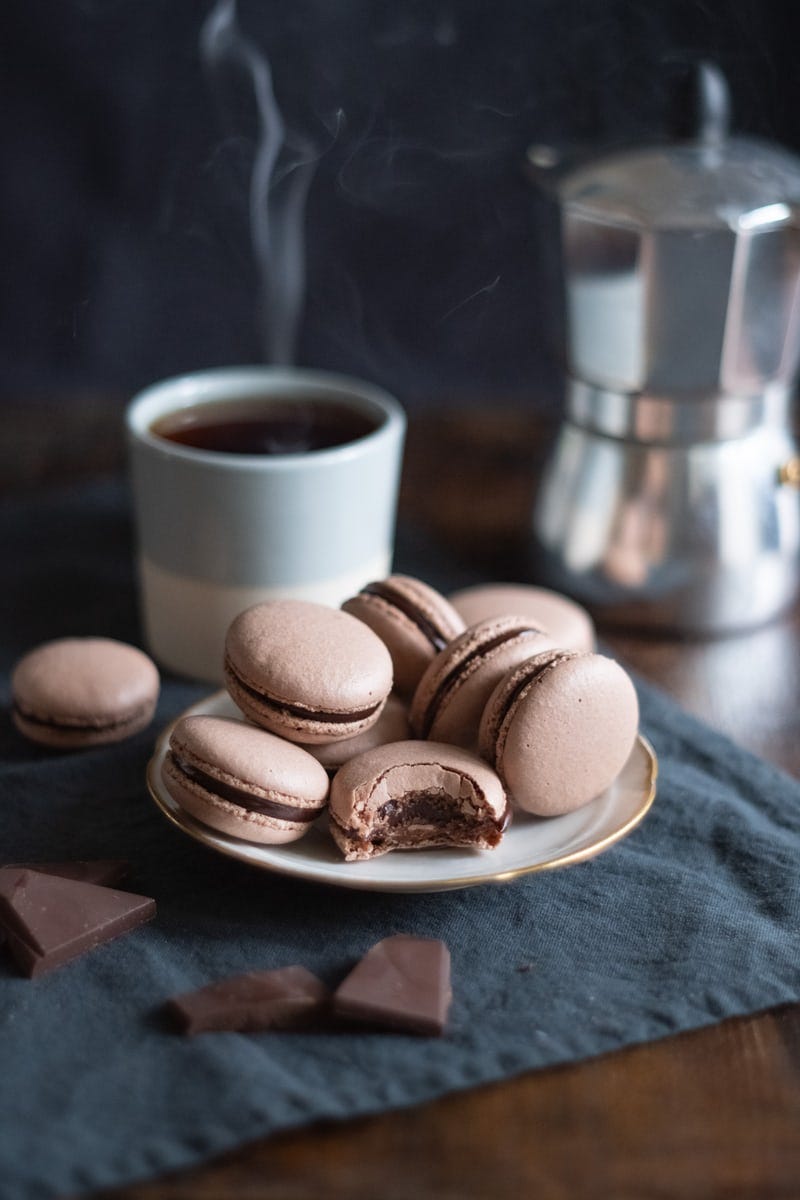
Coffee or Clutch?
For some money advice, just buy the coffee.
It won’t make you a millionare
Everyone needs to be smart about spending.
No matter how much money you have, you can loose more than earn more if you are careless.
Coffee is not the problem, it’s all the other little things that you aren’t paying attention to.
What about that gym membership that you haven’t canceled since the start of the pandemic or that extra 6th HBO or Disney+ series?
A book would be more educational and an investment.
What about that extra pile of small clothes you can’t fit into since you ate your way through lockdown? Sell them!
And most importantly, what about the food and little things you are consuming such as your eating out schedule, coffee runs and binge eating junk snack drawer?
That’s all toxic money as well.
So up till now, we uncovered why coffee runs aren’t the smartest move and its much more economically, financial sustainable and efficient to brew your own roast.
But let’s play devil’s advocate for a sec and see both sides.
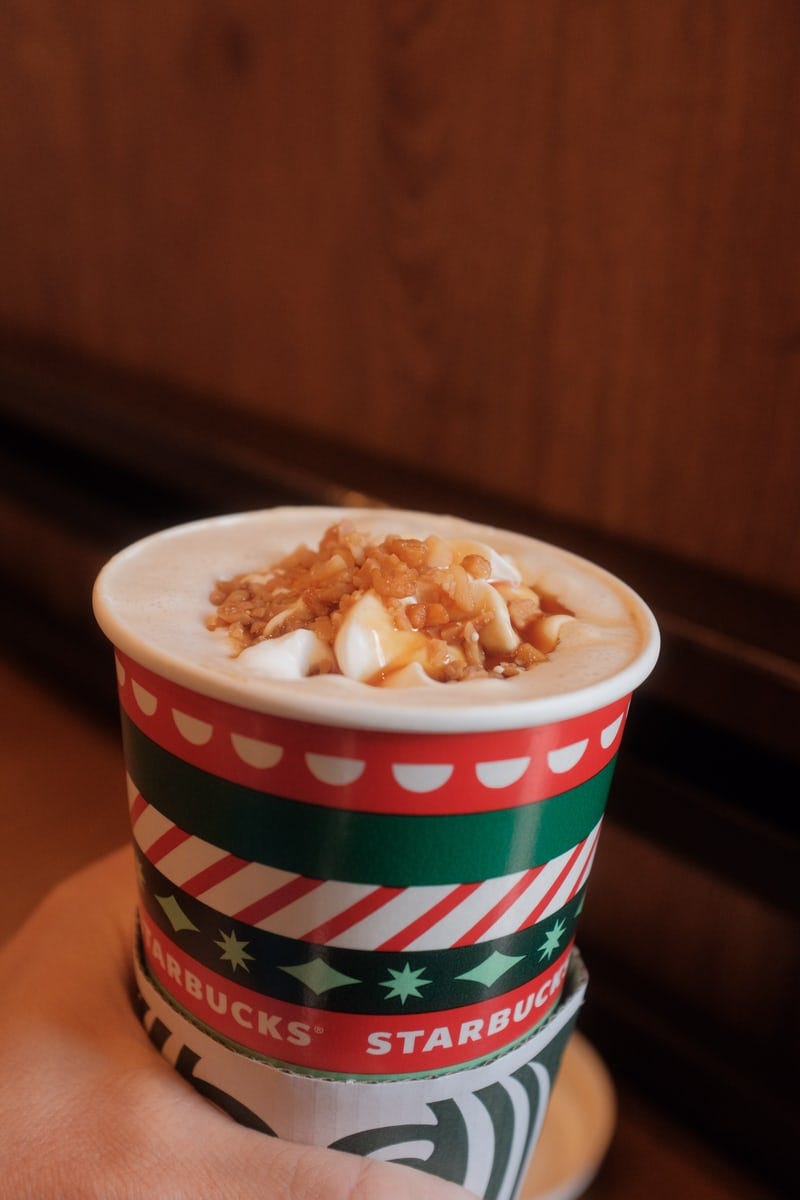
Opposing Side: Buying Coffee Is Best
Personal finance advice is centered around tiny expenses, like coffee, snacks, occasional lunches or other small indulges. But those are usually the things that make life worth living. Skipping coffee won’t make you a millionaire, reducing your Netflix, vacation and leisure budget will!
It’s a need vs want question.
I feel that focusing on tiny purchases just ends up making people feel bad and shamed about their spending. But why do we have to have anxiety about spending on pleasures?
It’s a quick fix
Theres a taboo about money and a myth about investing. It’s not for quant nerds or geeks. It should be simple and fun. It is a part of your life but doesn’t have to rule it.
Coffee falls into that category. You have to weigh what takes up the majority of your bill each month.
The largest expense for Americans is housing then food and insurance. It most likely falls in there. If you want to continue living in NYC, then you have to give up living like a rockstar with a cappuccino every morning. The increased cost of living in the city has to make up for the expensive prices.
To really save yourself, just make coffee yourself or drink agua and to save some money, take the classic investing route and just buy a collection of low-cost investments like index funds.
Index funds will track different certain segments of the stock and bond markets, that provide exposure to businesses around the world. This factor combines the right mix of aggressive investments (stocks) and conservative ones (bonds).
Happy sipping.

